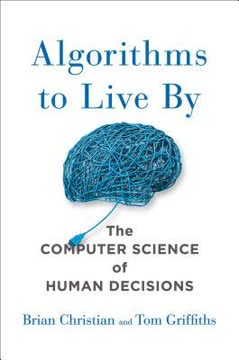Key Takeaways
1. Cultivate a Genius Mindset: Anyone Can Learn and Grow
"There isn't any reason to be arrogant, but at the same time, you can't ever put yourself down."
Embrace your potential. The genius mindset is not about innate knowledge, but rather the ability and willingness to learn. Everyone has the capacity to become a genius in their chosen field by adopting the right attitude and learning techniques.
Challenge limiting beliefs. Many people falsely believe that intelligence is fixed, but research shows that the brain is highly plastic and can continue to grow and develop throughout life. By cultivating a growth mindset, you open yourself up to endless possibilities for learning and self-improvement.
Key aspects of the genius mindset:
- Curiosity and eagerness to learn
- Persistence in the face of challenges
- Willingness to make mistakes and learn from them
- Belief in one's ability to improve and grow
2. Master Speed Reading to Accelerate Learning
"If you are able to master the art of speed reading, you are able to learn things a lot faster than you ever thought possible, and you will be able to achieve success even sooner."
Boost reading efficiency. Speed reading is a crucial skill for accelerating your learning process. By increasing your reading speed, you can absorb more information in less time, allowing you to cover more material and expand your knowledge base rapidly.
Practice key techniques. To improve your speed reading abilities, focus on:
Speed reading techniques:
- Using a finger or pen to guide your eyes
- Expanding your peripheral vision to take in more words at once
- Minimizing subvocalization (internal reading voice)
- Chunking words together instead of reading individually
- Skimming for main ideas before deep reading
Regularly practice these techniques to gradually increase your reading speed while maintaining comprehension. Remember, the goal is not just to read faster, but to absorb and retain information more efficiently.
3. Discover Your Unique Learning Style for Optimal Retention
"When you know what works for you, you can build your confidence on that."
Identify your strengths. Everyone has a unique learning style that works best for them. By discovering and leveraging your personal learning preferences, you can significantly enhance your ability to absorb and retain information.
Experiment with methods. Try various learning techniques to find what resonates with you:
Common learning styles:
- Visual (charts, diagrams, mind maps)
- Auditory (lectures, discussions, podcasts)
- Kinesthetic (hands-on activities, experiments)
- Reading/Writing (note-taking, summarizing)
Don't limit yourself to just one style; many people benefit from a combination of approaches. Be open to adjusting your methods based on the subject matter and your learning goals. The key is to find what works best for you and consistently apply those techniques in your learning journey.
4. Sharpen Focus and Eliminate Distractions for Effective Learning
"There isn't any reason to be arrogant, but at the same time, you can't ever put yourself down."
Create a distraction-free zone. One of the biggest obstacles to effective learning is the constant barrage of distractions in our modern world. To truly absorb and retain information, it's crucial to create an environment conducive to focused learning.
Implement focus-enhancing strategies. Try these techniques to improve your concentration:
Focus-boosting methods:
- Designate a specific learning area free from electronic devices
- Use the Pomodoro Technique (25-minute focused sessions with short breaks)
- Practice mindfulness or meditation to clear your mind before studying
- Utilize noise-cancelling headphones or white noise to block out distractions
- Set clear goals for each learning session to maintain motivation
Remember, the ability to focus is like a muscle – the more you practice, the stronger it becomes. Consistently applying these strategies will help you develop laser-like focus and dramatically improve your learning efficiency.
5. Commit to the 20-Hour Rule for Skill Acquisition
"If you are serious about learning anything, and it doesn't matter what that is… if you want to learn it in a way that you will actually progress in the skill, then do this, and you will."
Embrace deliberate practice. The 20-hour rule suggests that you can become proficient in a new skill by dedicating 20 hours of focused, deliberate practice. This approach breaks down the daunting task of mastering a new skill into a manageable timeframe, making it less intimidating and more achievable.
Structure your learning. To make the most of your 20 hours:
20-hour rule implementation:
- Choose a specific skill to learn
- Break the skill down into subcomponents
- Research the most effective learning methods for that skill
- Remove barriers to practice (set up your environment, gather necessary materials)
- Commit to 45 minutes of daily practice for about a month
- Focus on deliberate practice of the most important subskills
By committing to this structured approach, you'll be amazed at how quickly you can progress from novice to proficient in your chosen skill. Remember, the goal is not perfection, but rather a solid foundation upon which you can continue to build.
6. Break Down Complex Skills into Manageable Components
"There are actual studies that show it is easier to learn a motor skill and retain how to do that skill if you practice doing it within 2 hours of going to sleep."
Analyze skill components. When approaching a new skill, it's essential to break it down into its constituent parts. This process, known as skill deconstruction, allows you to focus on mastering individual components before bringing them together.
Prioritize and practice. Once you've identified the key components of a skill:
Skill deconstruction process:
- List all subskills required for the main skill
- Identify the most critical subskills (usually 20% that give 80% of results)
- Research best practices for each subskill
- Create a practice plan focusing on these critical components
- Start with the basics and gradually increase complexity
- Regularly assess progress and adjust your focus as needed
By tackling complex skills in this systematic way, you make the learning process less overwhelming and more efficient. This approach also allows you to see progress more quickly, which can boost motivation and encourage continued practice.
7. Optimize Learning Environment and Timing for Maximum Results
"There are actual studies that show it is easier to learn a motor skill and retain how to do that skill if you practice doing it within 2 hours of going to sleep."
Leverage sleep for learning. Research shows that practicing a skill shortly before sleep can significantly enhance retention and skill consolidation. This is particularly effective for motor skills, as the brain processes and reinforces new neural pathways during sleep.
Create an ideal learning space. Your environment plays a crucial role in learning effectiveness:
Optimizing your learning environment:
- Choose a quiet, well-lit space free from distractions
- Ensure proper temperature and ventilation
- Use ergonomic furniture to maintain comfort during long study sessions
- Keep necessary materials organized and easily accessible
- Incorporate inspirational elements (quotes, vision boards) to maintain motivation
By combining optimal timing with a conducive learning environment, you create the perfect conditions for rapid skill acquisition and knowledge retention. Remember to experiment with different setups to find what works best for you.
8. Track Progress and Celebrate Milestones in Your Learning Journey
"Once you have completed the month, take a few minutes and flip back to day one, and see how far you have come."
Monitor your growth. Keeping track of your progress is crucial for maintaining motivation and identifying areas for improvement. By regularly assessing your skills and knowledge, you can adjust your learning strategy and celebrate your achievements.
Implement tracking methods. Use these techniques to monitor your progress:
Progress tracking strategies:
- Keep a learning journal to document daily practice and insights
- Use a skill-tracking app or spreadsheet to quantify improvements
- Record video or audio of your practice sessions for later comparison
- Set specific, measurable goals and regularly assess your progress
- Seek feedback from mentors or peers in your field of study
Celebrate both small and large milestones along your learning journey. Recognizing your progress reinforces positive habits and motivates you to continue pushing forward, even when faced with challenges.
9. Leverage Both Mental and Motor Skill Learning Techniques
"There are actual studies that show it is easier to learn a motor skill and retain how to do that skill if you practice doing it within 2 hours of going to sleep."
Tailor your approach. Recognize that mental and motor skills require different learning strategies. While mental skills often benefit from techniques like spaced repetition and active recall, motor skills are best learned through consistent physical practice and muscle memory development.
Combine learning methods. For optimal results, integrate various techniques:
Mental skill learning:
- Use mnemonic devices and memory palaces
- Practice active recall through flashcards or self-quizzing
- Teach the concept to others to reinforce understanding
Motor skill learning:
- Break complex movements into smaller, manageable parts
- Practice consistently, focusing on proper form
- Utilize mental rehearsal and visualization techniques
By understanding the unique requirements of different types of skills, you can tailor your learning approach for maximum efficiency and effectiveness.
10. Overcome Self-Doubt and External Negativity in Your Learning Path
"Don't let anyone put you down, and don't get into petty arguments, you are capable, and you are able to be confident in your own quiet genius."
Cultivate self-belief. Self-doubt and external negativity can be significant barriers to learning and personal growth. Developing a strong sense of self-belief and resilience is crucial for overcoming these obstacles and maintaining your learning momentum.
Build mental fortitude. Implement these strategies to stay confident and focused:
Overcoming learning obstacles:
- Practice positive self-talk and affirmations
- Surround yourself with supportive, like-minded individuals
- Set realistic expectations and celebrate small victories
- View mistakes as learning opportunities rather than failures
- Develop a growth mindset that embraces challenges
Remember that everyone faces doubts and setbacks in their learning journey. By maintaining a positive attitude and focusing on your progress rather than perfection, you can overcome these challenges and continue to grow and develop your skills.
Last updated:
Review Summary
Learning receives mixed reviews, with an average rating of 3.01/5. Some praise its concise format and motivational aspects, while others criticize its lack of depth and new information. Positive reviewers find the speed reading techniques and learning strategies helpful. Critics argue the book is too basic, repetitive, and lacks expert advice. Several reviewers note the book's brevity, with some appreciating its quick read and others feeling it's too short to provide substantial value. Overall, opinions vary widely on the book's usefulness for improving learning skills.
Similar Books










Download PDF
Download EPUB
.epub digital book format is ideal for reading ebooks on phones, tablets, and e-readers.





